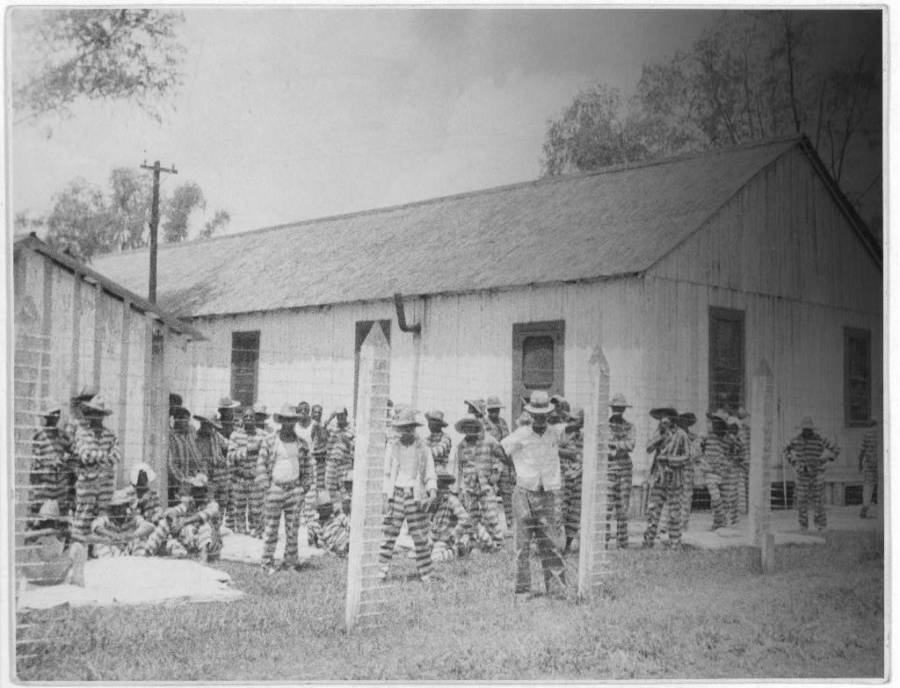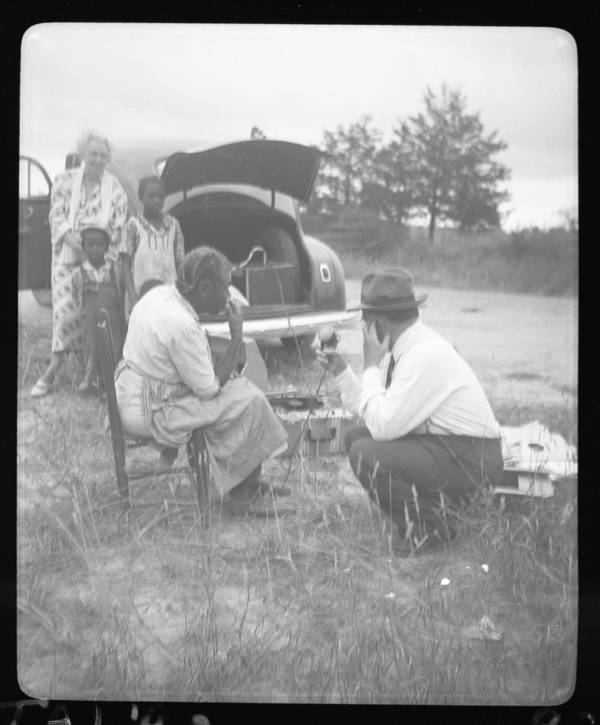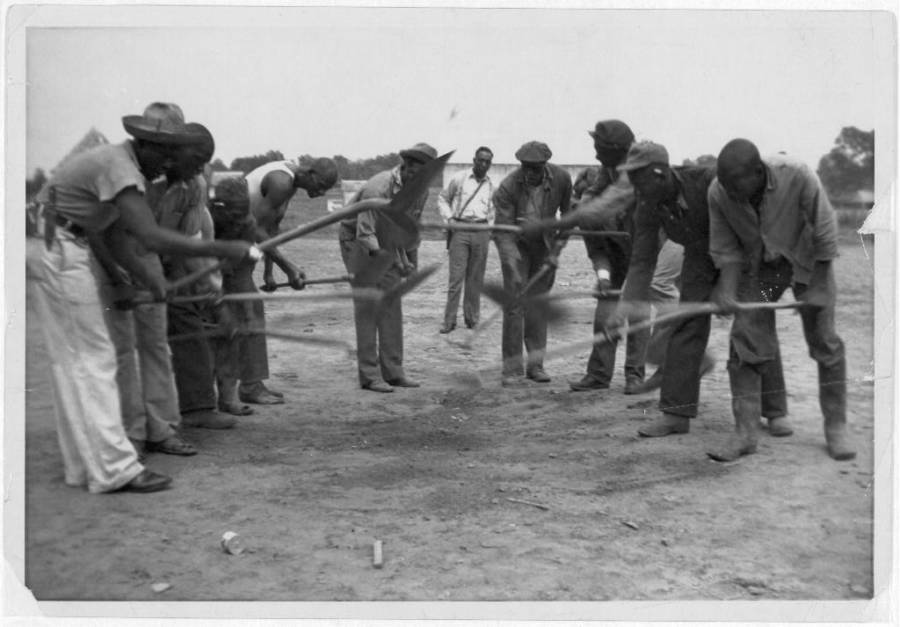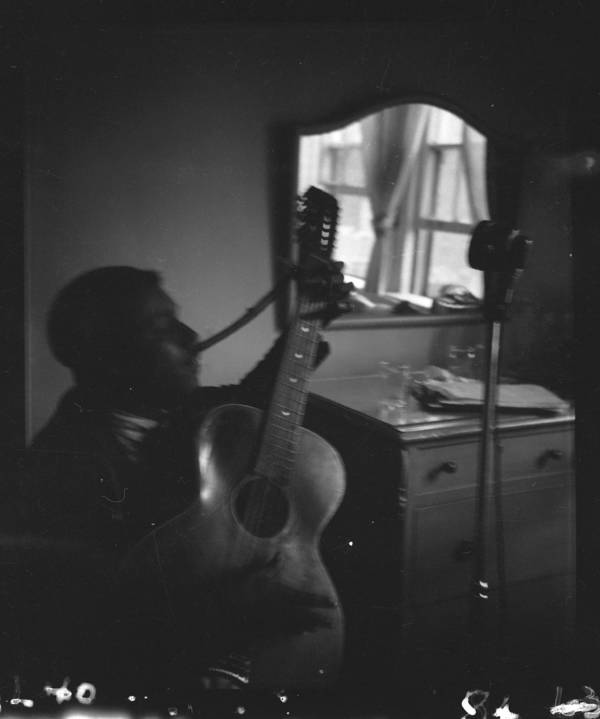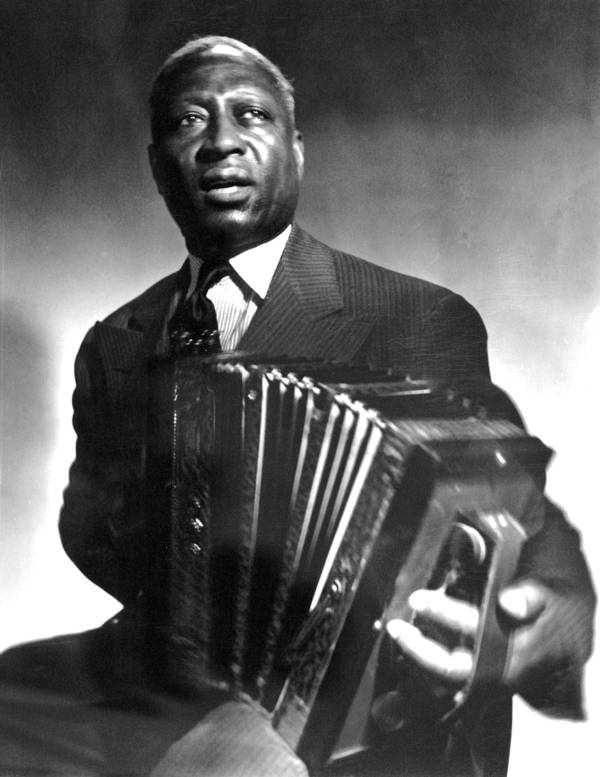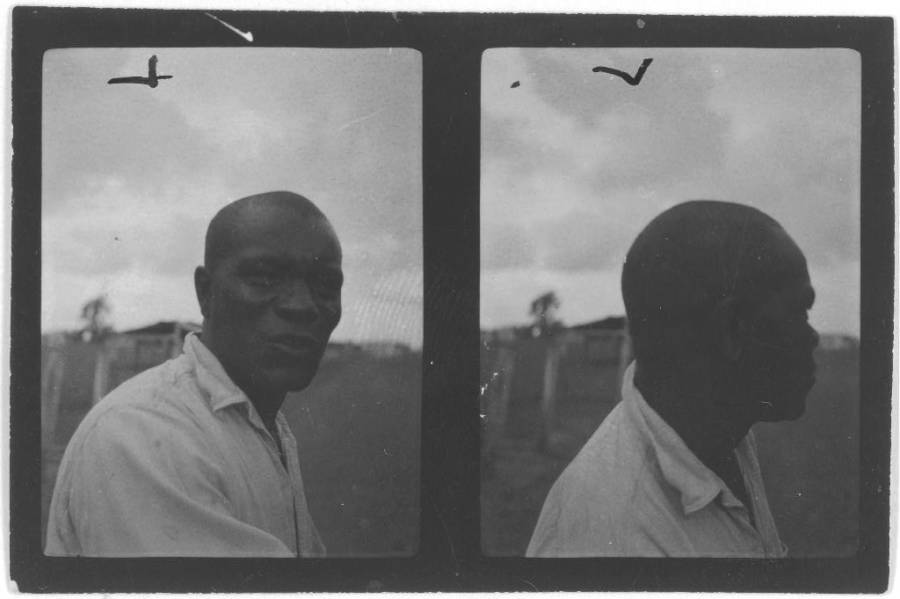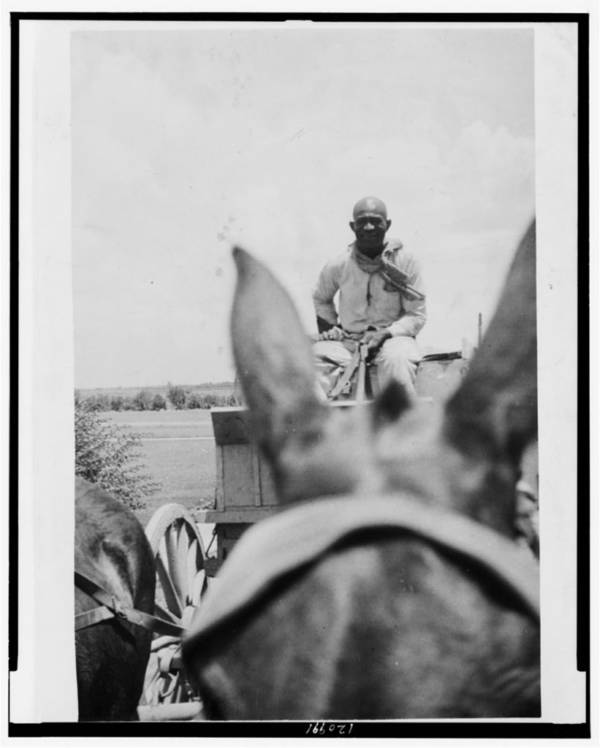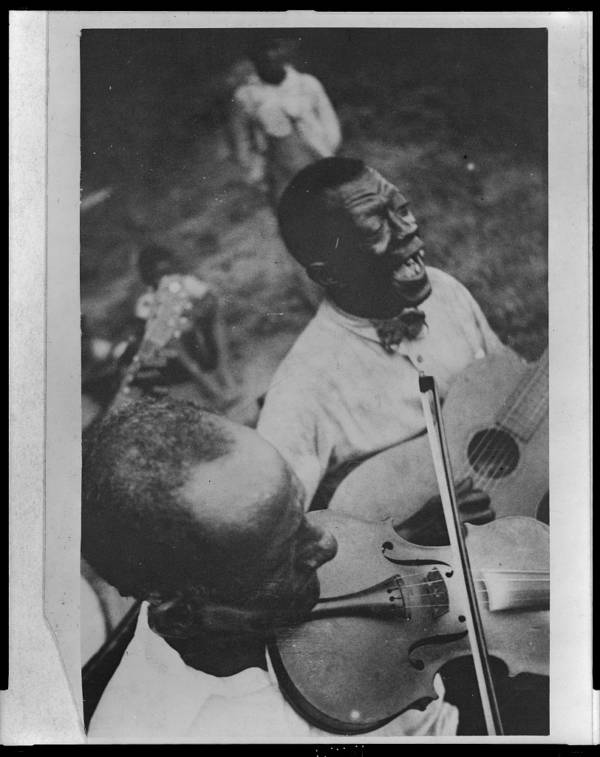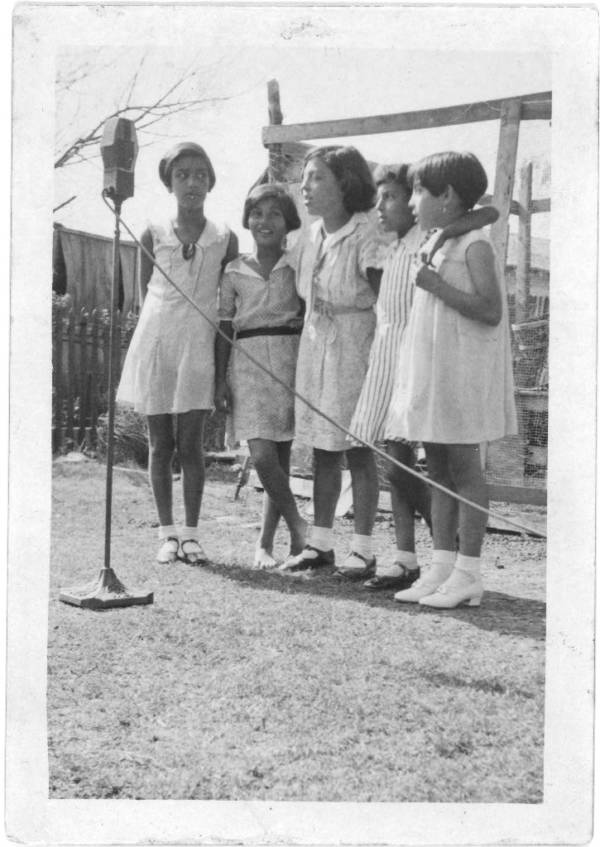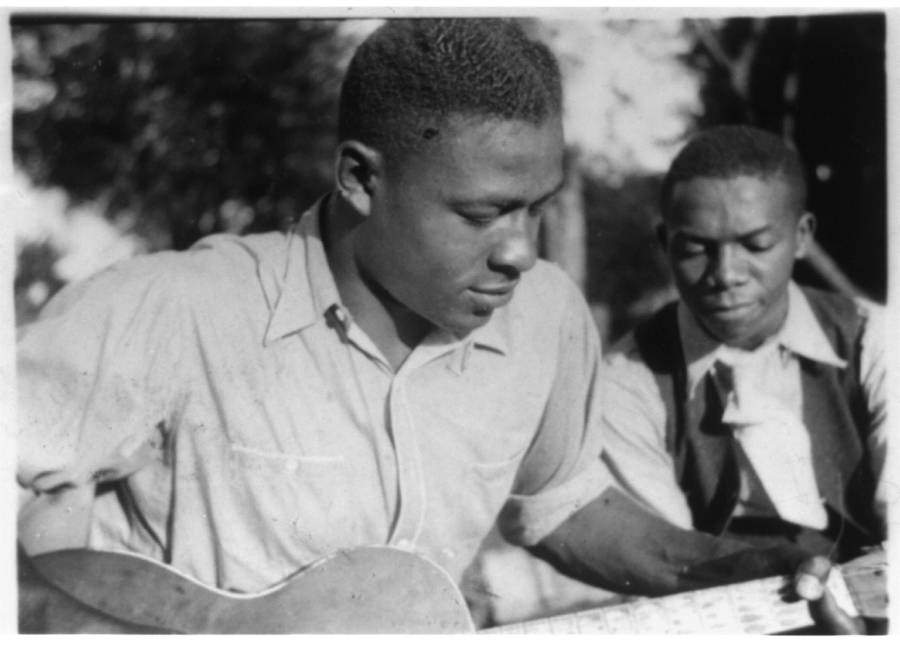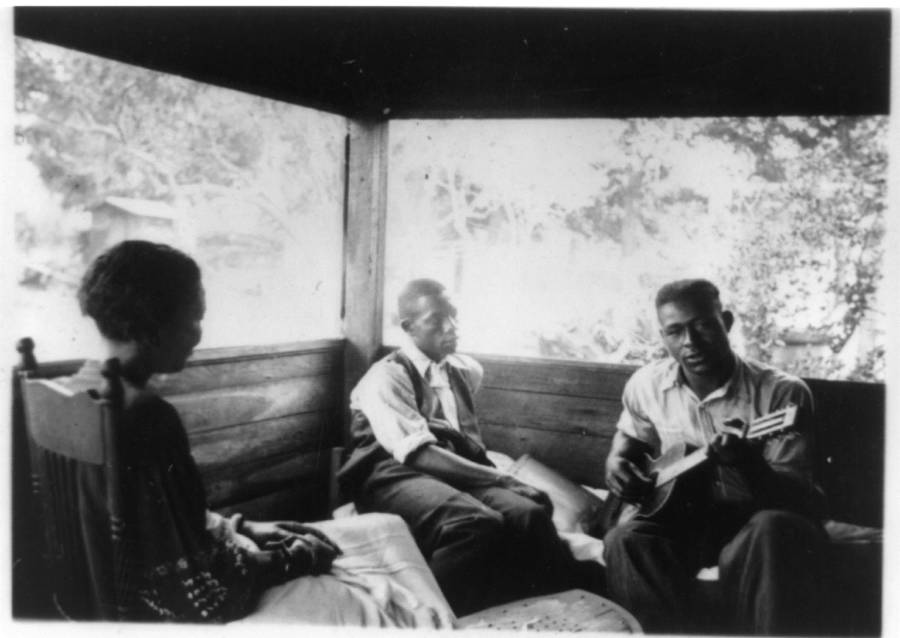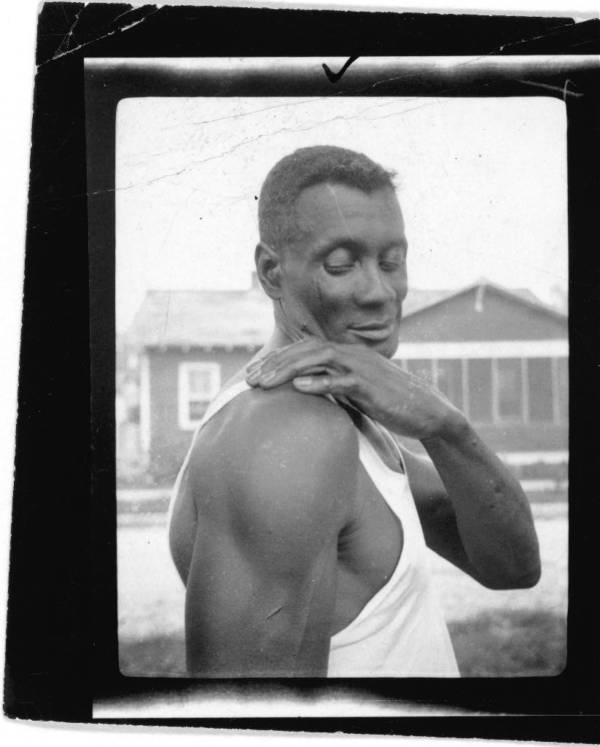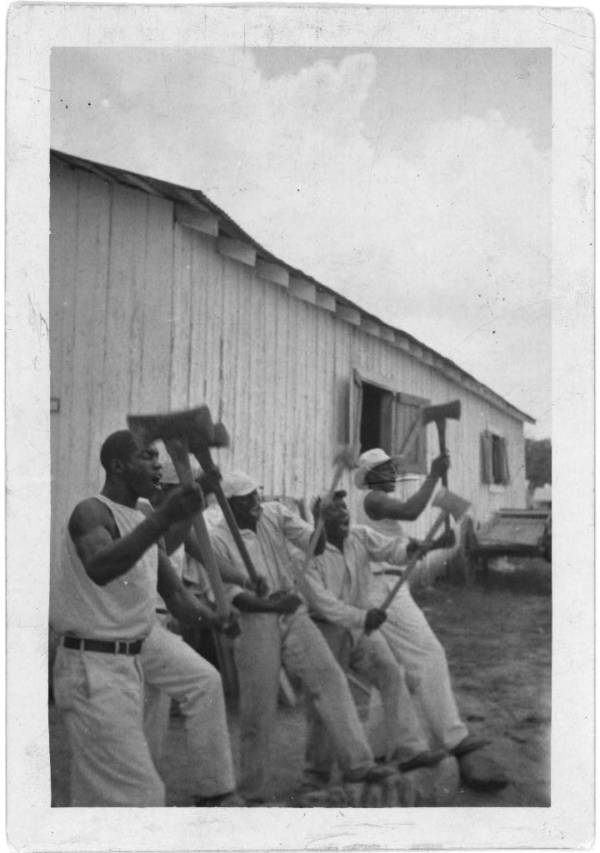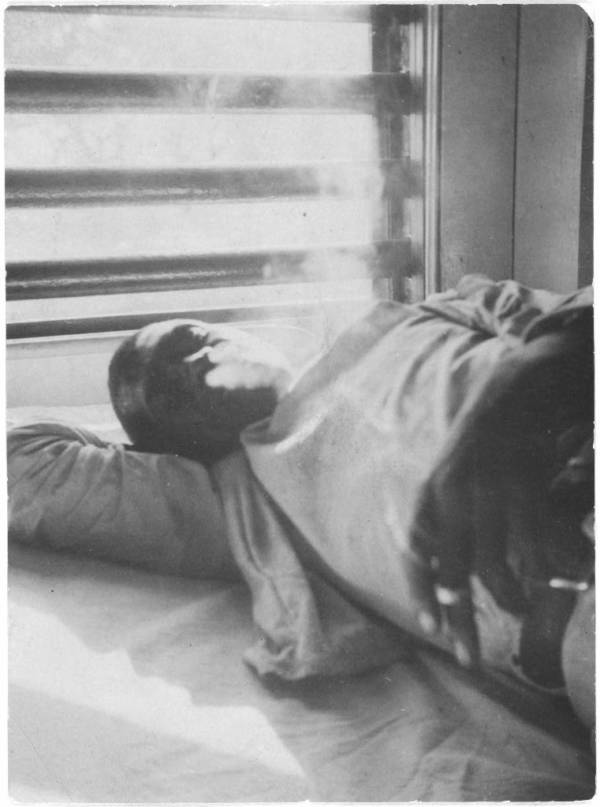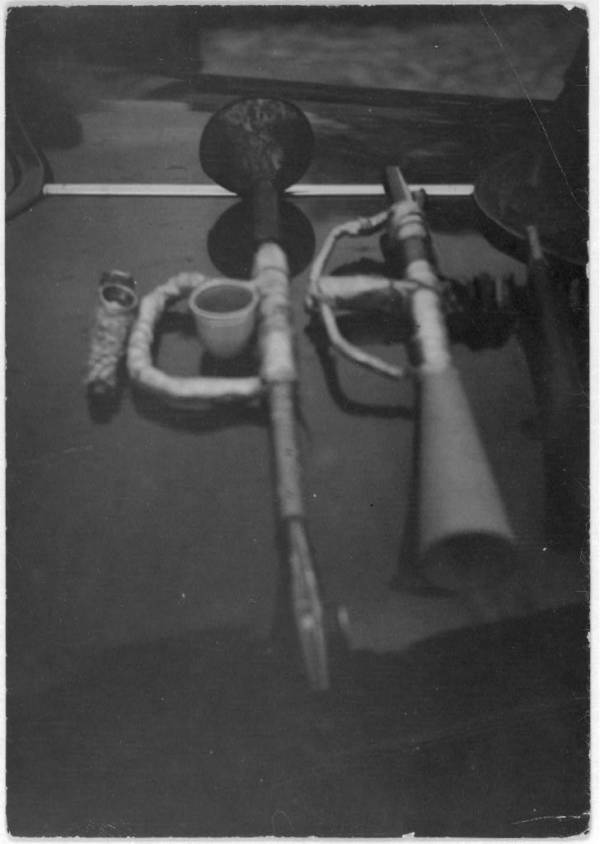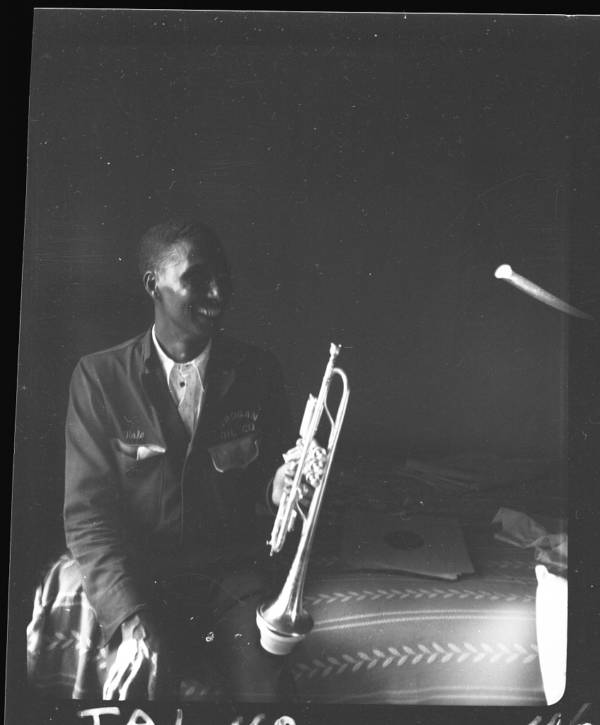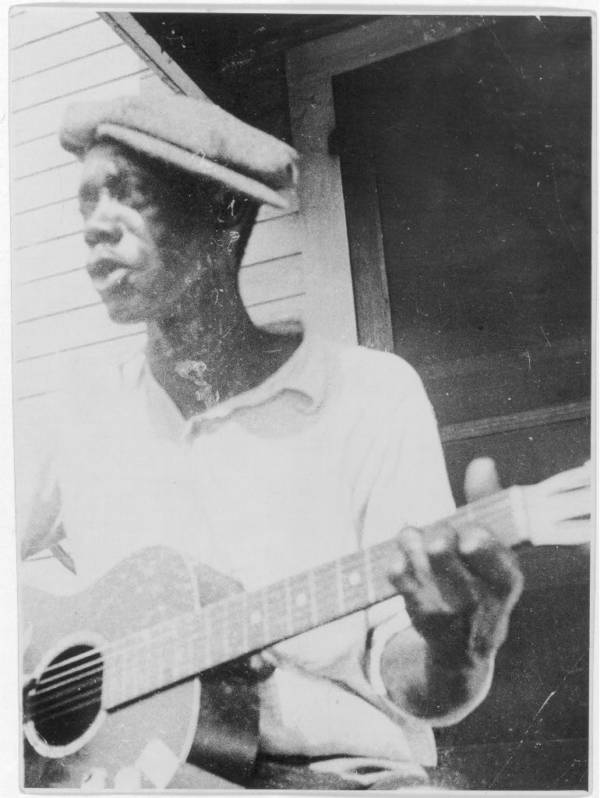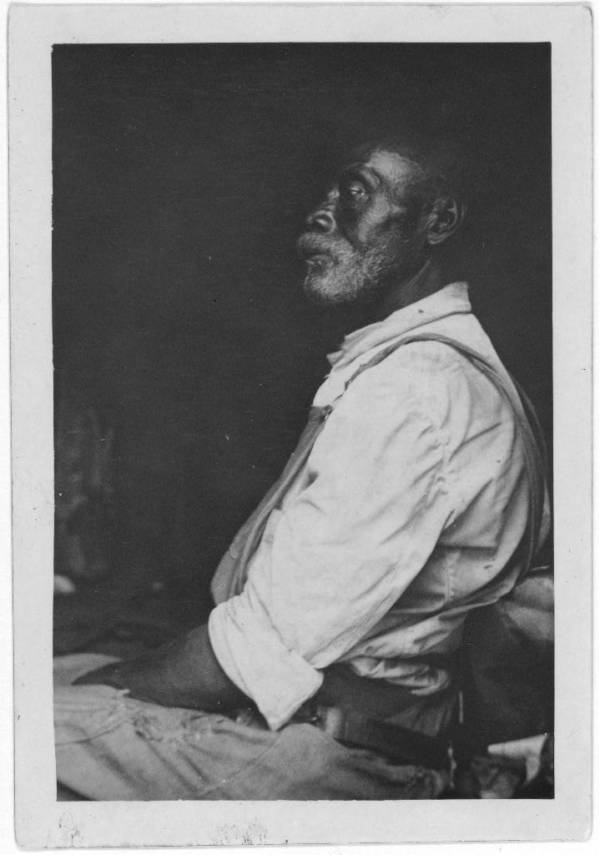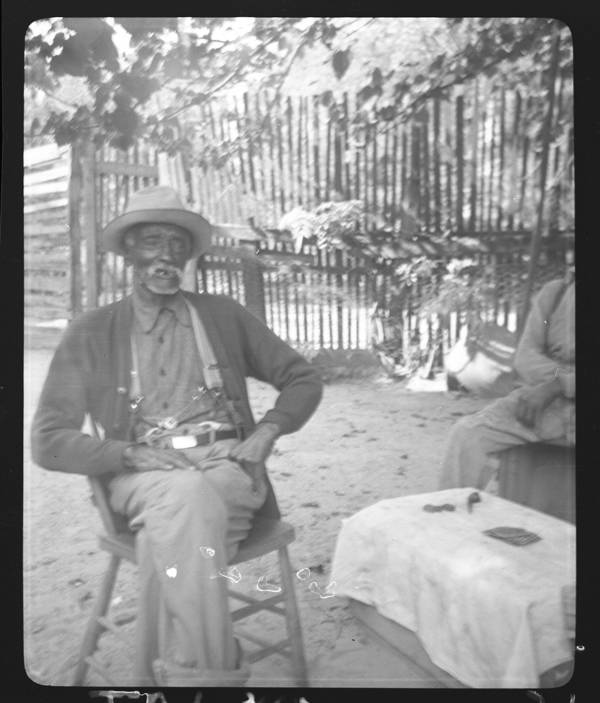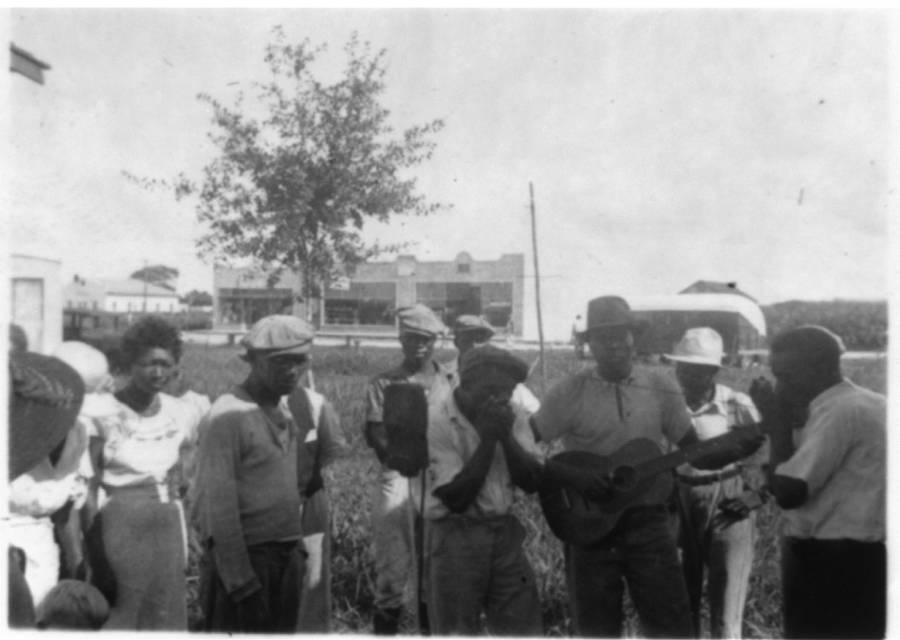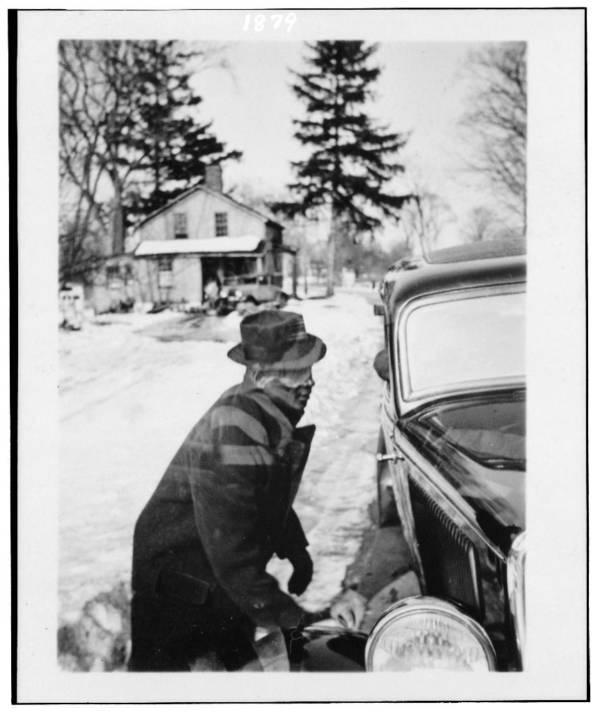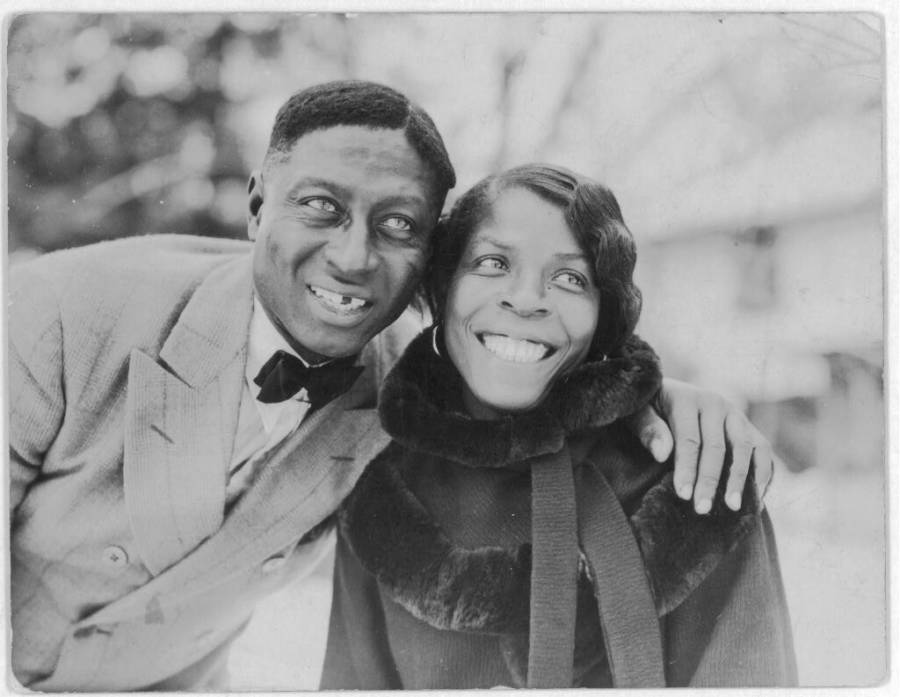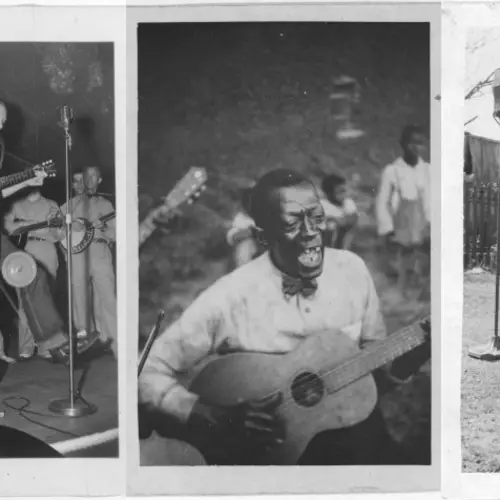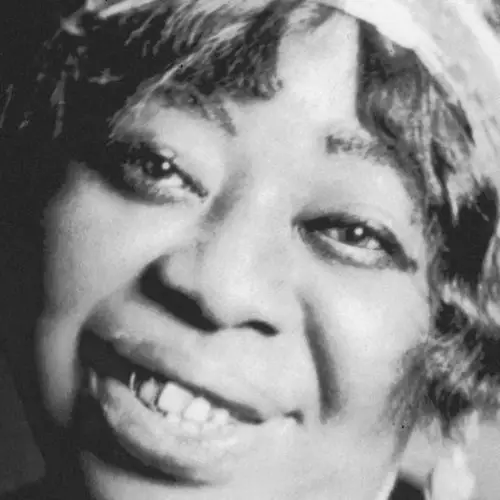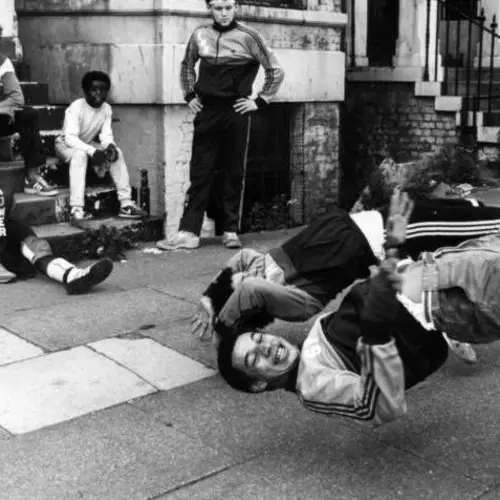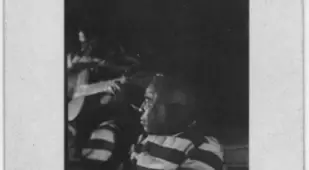1 of 28
Huddie "Lead Belly" Ledbetter, one of the most celebrated blues singers of all time, stands in a prison compound.
Leadbelly had convicted for attempted homicide after stabbing a white man in a fight. He found his way into Louisiana State Penitentiary (pictured here in 1934), one of the places where the blues was born.Library of Congress
2 of 28
Lead Belly, in prison stripes, plays the guitar.
Being discovered in a Louisiana prison would be Lead Belly's big break. His recordings with John and Alan Lomax, made inside a prison cell, would be the start of his career.
Louisiana State Penitentiary. 1934.Library of Congress
3 of 28
Aunt Harriett McClintock sings for John Lomax, recording out of the back of his car.
"My Mama learned it to me," Aunt Harriett told John Lomax, after singing her song. "She dead about thirty years."
Sumterville, Alabama. 1940.Library of Congress
4 of 28
A group of prisoners work while they sing a song called "Rock Island Line." Their song would later be covered by everyone from Harry Belafonte to Johnny Cash.
Gould, Arkansas. 1934.Library of Congress
5 of 28
Blind Willie McTell plays his guitar inside of a hotel room.
Atlanta, Georgia. 1940.Library of Congress
6 of 28
Lead Belly plays the accordion.
Location unspecified. 1942.Wikimedia Commons / Library of Congress
7 of 28
James "Iron Head" Baker made the first recording of the classic song "Black Betty" from inside of a jail cell at the age of 63.
Sugar Land, Texas. 1934.Library of Congress
8 of 28
Baker had spent the last 30 years in and out of jail cells. "I'se a H.B.C.," Baker told Lomax. "Habitual criminal, you know."
Sugar Land, Texas. 1934.Library of Congress
9 of 28
Baker often recorded with another prisoner, Moses "Clear Head" Platt. Platt's music, which was recently used in the film 12 Years A Slave, was recorded inside of a jail cell.
Sugar Land, Texas. 1934.Library of Congress
10 of 28
A homemade horn, drum and washboard, fashioned together by people without the money to buy instruments in a store but the need to play music.
Location unspecified. Circa 1934-1950.Library of Congress
11 of 28
Stavin' Chain sings "Batson."
Lafayette, Louisiana. 1934.Library of Congress
12 of 28
Stavin' Chain's songs, like "Winnin' Boy Blues," would later be covered by artists like Jelly Roll Morton and Big Joe Williams.
Lafayette, Louisiana. 1934.Library of Congress
13 of 28
Children play a singing game.
Eatonville, Florida. 1935.Library of Congress
14 of 28
A group of Mexican girls, whose names have been lost to time, sing into Alan Lomax's microphone.
San Antonio, Texas. 1934.Library of Congress
15 of 28
Gabriel Brown and Rochelle Harris play a song.
Eatonville, Florida. 1935.Library of Congress
16 of 28
Zora Neale Hurston, the famous author of Their Eyes Were Watching God, sits down to hear Gabriel Brown and Rochelle French play.
Eatonville, Florida. 1935.Library of Congress
17 of 28
Convict John Bray, also known as "Big Nig," was discovered leading a prison work crew, singing songs about his time in the trenches of France during World War I.
Amelia, Louisiana. 1934.Library of Congress
18 of 28
Lightnin' Washington leads a line of convicts in song, the axes in their hands pounding in time as the percussion for their song.
Darrington State Farm, Texas. 1934.Library of Congress
19 of 28
Lightnin' Washington smoking inside a prison work house.
Darrington State Farm, Texas. 1934.Library of Congress
20 of 28
Homemade horns.
Unspecific location. Circa 1935-1950.Library of Congress
21 of 28
Noel Lebeau holds his trumpet in his hotel room.
Shreveport, Louisiana. 1940.Library of Congress
22 of 28
Bill Tatnall plays on the front porch of his home.
Frederica, Georgia. 1935.Library of Congress
23 of 28
Sam "Old Dad" Ballard.
New Iberia, Louisiana. 1934.Library of Congress
24 of 28
Uncle Billy McCrea, born a slave, sits down to talk with Lomax and share his songs.
Jasper, Texas. 1940.Library of Congress
25 of 28
Booker T. Sapps, Roger Mathews, and Willie Flowers play their song "Po' Laz'us."
Belle Glade, Florida. 1935.Library of Congress
26 of 28
Leadbelly, now out of prison, brushes the snow off of a car.
After his release, Lead Belly worked as John Lomax's driver to pay his way through the outside world. Lead Belly got out of prison while his fame as the "singing convict" was growing. The governor had to issue a public denial that his early release had anything to do with his growing celebrity.
Wilton, Connecticut. 1935.Library of Congress
27 of 28
Lead Belly, a free man, poses with his newly-wedded wife, Martha Promise Ledbetter.
Wilton, Connecticut. 1935.Library of Congress
28 of 28
Like this gallery?
Share it:
